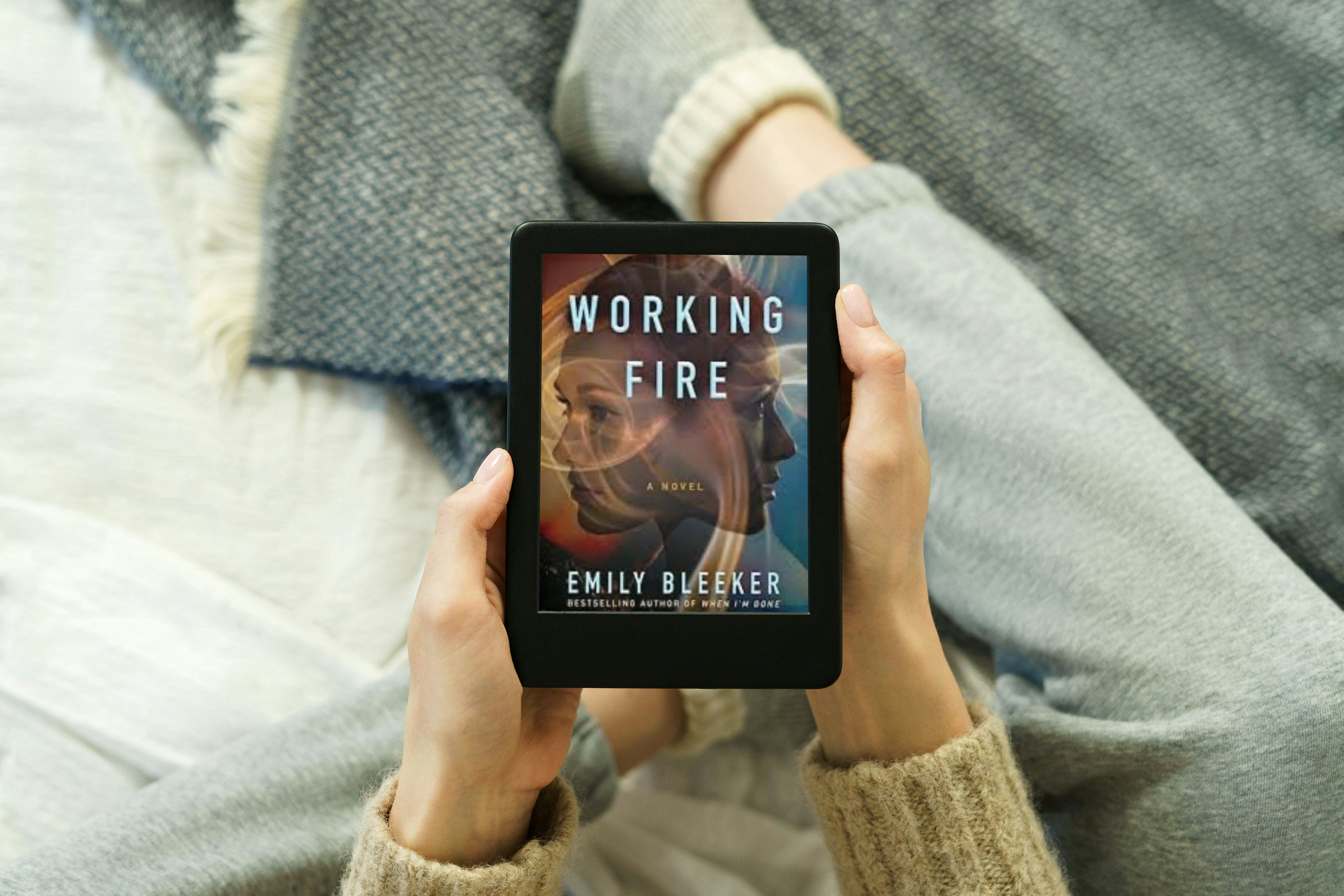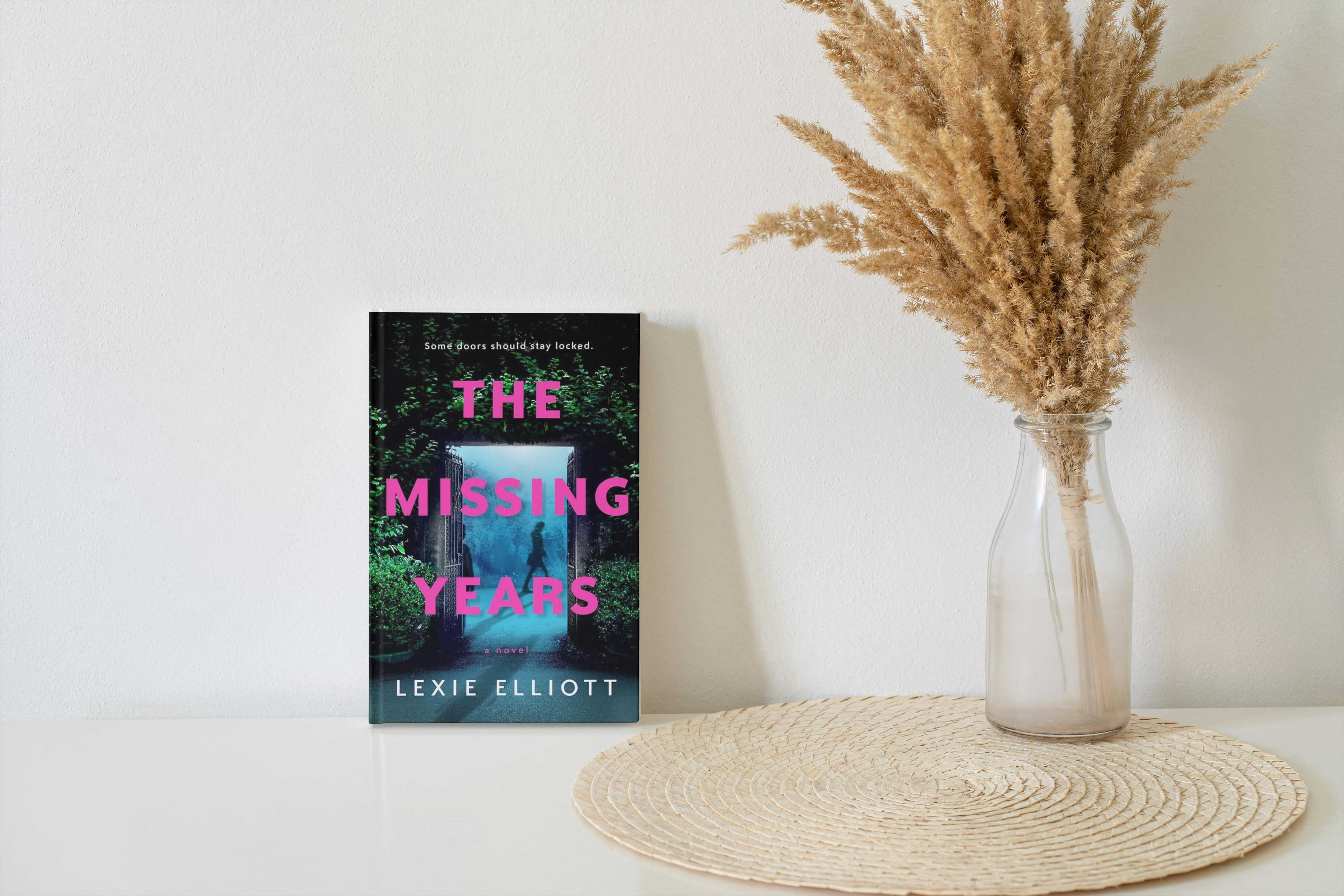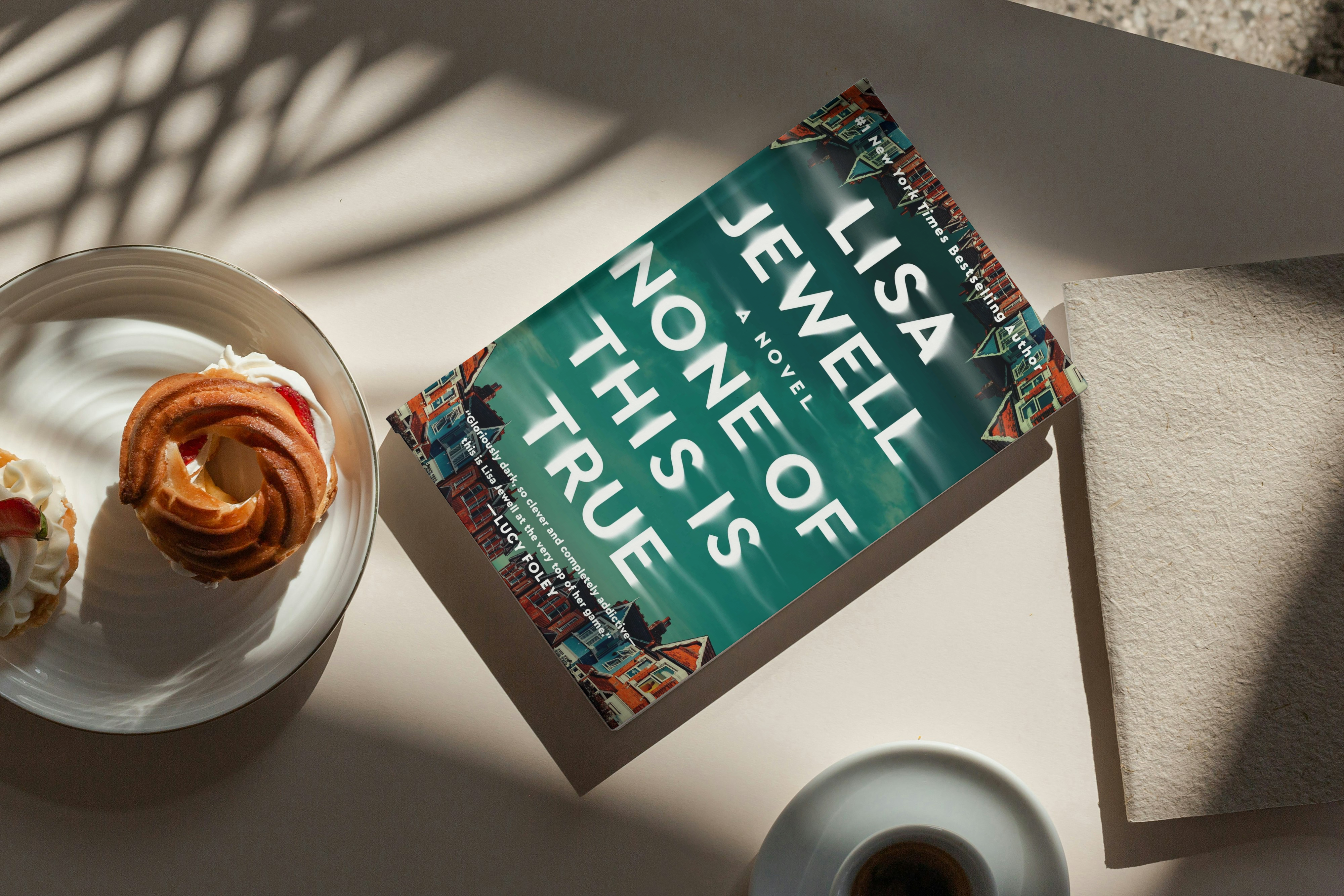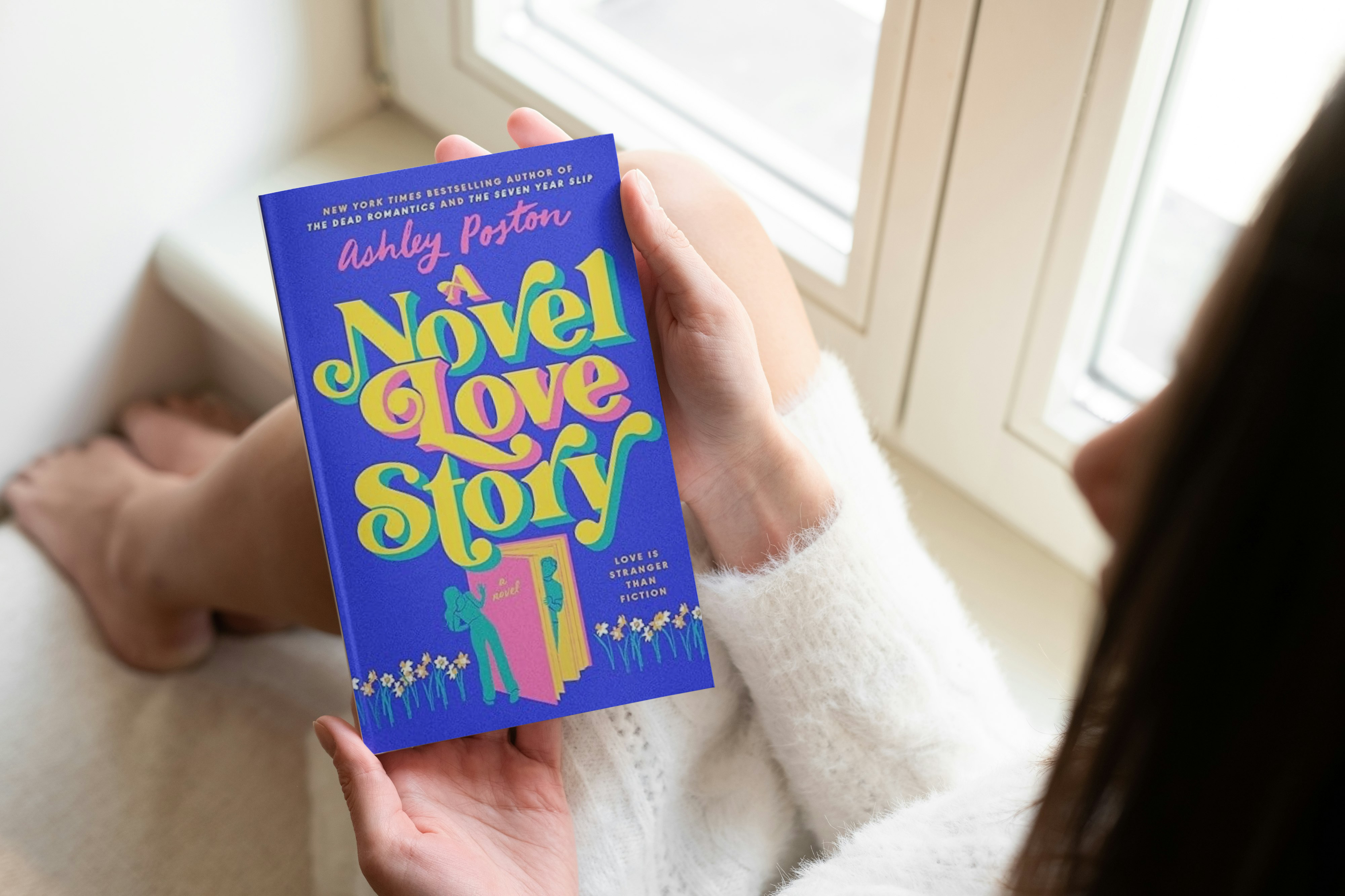Death of the Author by Nnedi Okorafor is an immersive Literary Sci-Fi that explores humanity, identity, and the dynamic relationship between artists, their art, and public perception of it.
Review Death of the Author by Nnedi Okorafor
Synopsis
While attending her sister’s wedding in Trinidad and Tobago Zelu’s life falls apart. She loses her job as a professor at the university due to student complaints. And her latest literary fiction novel is rejected by her publisher. Filled with frustration and anxiety and riding a creative high both literally and figuratively she begins to write a Sci-Fi story about robots and AI.
This consumes her and worries her family that encourage her to find a proper job but she’s insistent on her project that she’s become obsessed with. Finally finished she submits it to her publisher and is shocked when they love it and are moving forward to publish it. She’s launched into fame and stardom due to the success of her novel changing the very fabric of her life.
As she navigates this new reality where opportunities abound and her work is frequently misinterpreted she must learn how to accept this new identity without losing herself while asserting her independence as a disabled Nigerian-American woman from her overprotective and opinionated family.
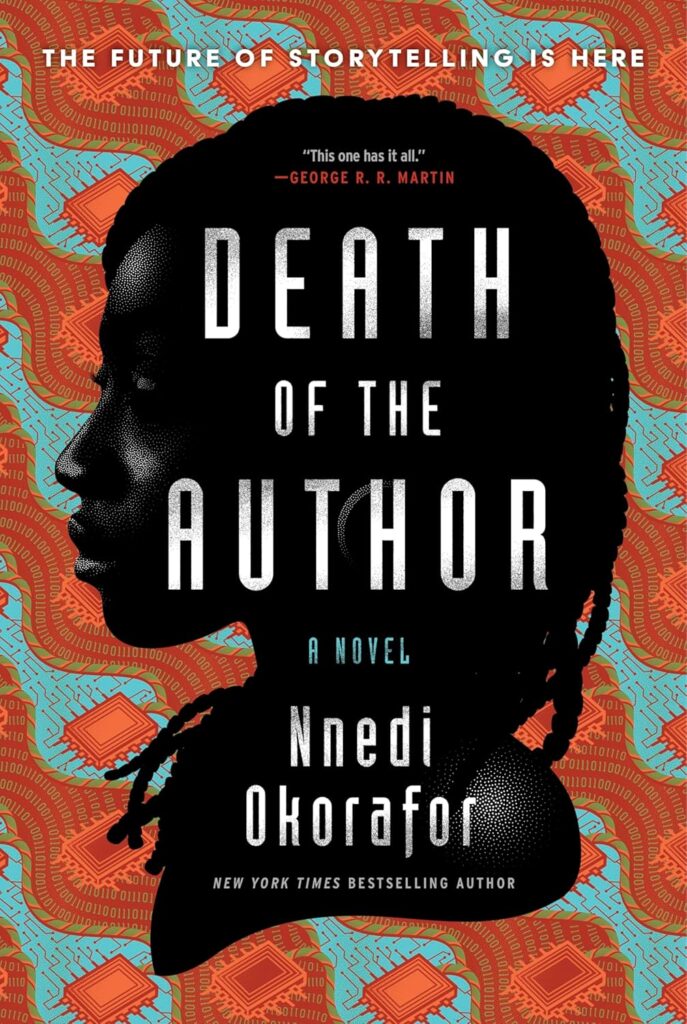
Tropes & Representation
- Book within a book
- Complex family dynamics
- Disability rep (paraplegic main character)
- African-futurism
- Nigerian American author
- Nigerian American cast
Content
This novel is complex storytelling at its finest with a book within a book and an intimate character study on Zelu a disabled Nigerian American writer struggling to find her purpose and place in the world. You learn to understand Zelu at her core and how the accident that led to her disability and her family’s ableist ideals and overprotection led her to become headstrong, and distant protecting herself by hiding behind the walls she’s built.
You also see how flawed Zelu is with her quick temper, impulsivity and inability to see situations from all angles. Yet, this makes her all the more endearing.
The themes and commentary in this novel were plentiful. Top themes explored are: family and cultural obligations, the power of storytelling, the relationship between art and reality, the concept of the “death of the author” philosophy in writing both literal and figurative, and how these factor in one’s self-perception and identity.
This novel felt like an ode to storytelling emphasizing how crucial it is to understand the author’s intent and connection with their creation to properly comprehend their work in the appropriate context and enrich your reading experience.
Writing Style
The prose was stunning and exhibited Okorafor’s ability to craft a character-driven story where you’re immersed in the thoughts, emotions and feelings of the main character.
The transitions from Zelu’s narrative, to the Rusted Robots book to the interviews with Zelu’s family and friends worked to keep your sense of wonder and intrigue as the events of the story unfold. Okorafor dives deep into Zelu’s psychology and how her environment, familial expectations and relationships impact how she interacts with the world and sees herself.
The structure was phenomenal though at times felt a bit ominous but made sense at the conclusion. While this element worked for me it may feel a bit misleading or anti-climatic for some readers.
Plot Development
This novel is an oxymoron as Zelu’s storyline is the definition of low plot as there were few external events that progressed the story. Whereas the Rusted Robots book had a perfect blend of plot-driven and character driven elements that moved the story along.
Both stories are a slow burn as Okorafor takes her time to establish the world, and develop the characters. While I found the slice of life moments fascinating as we explored Zelu and Ankara from Rusted Robots I can appreciate how for many readers this can drag and lull and become boring.
Additionally, reading a book within a book may feel a bit overwhelming following two stories simultaneously creating a poor reading experience. Finally, the culmination of events for the conclusion wasn’t neccessarily satisfying for Zelu’s storyline. Again there was so much buildup to what the reader may have anticipated to be a climatic finish to perhaps feel a bit let down by the closing events.
On the other hand, the conclusion for Rusted Robots was climactic and action-packed for that particular storyline and felt satisfying.
Characters
The characterization in this story was magnificent. You have an intimate understanding of Zelu, her family and the influential people in her inner circle. This not only helped you better understand Zelu but highlighted her flaws and shortcomings and areas she could stand to improve. While she didn’t have a major arc we did see her become comfortable within herself and settle into her identity. And there was marginal improvement in her areas of weakness.
Yet, she was a delight to read about and experience the world from her perspective. When it comes to the disability representation I did find it to be enlightening. Watching her experience ableist attitudes at various points in this story highlighted the struggle of many disabled individuals in the world especially super traditional cultures such as the Nigerian culture. While I can’t speak to the accuracy of this representation I do feel the reader is able to have a greater understanding of this community of individuals.
Audiobook
I chose to enjoy this book as a tandem read and do not regret my decision. Not only was I able to pronounce names correctly but Zelu’s voice actor Liz Femi was phenomenal. She sounded exactly as I would envision Zelu to sound. Her range when it came to acting other character’s voices was astounding as she was able to give each character their distinct voice without it sounding off or overdone. Truly spell binding experience.
Favorite Quotes
Perhaps my favorite theme was how powerful storytelling is. These two quotes encapsulate my feelings about my love for books, literature, reading and storytelling. Expressing my feelings magnificently. Both quotes were from Ankara in the Rusted Robots book.
“Stories contain our existence; they are like gods. And the fact that we create them from living, experiencing, listening, thinking, feeling, giving — they remind me of what’s great about being alive.”
“Stories were the greatest currency to us, greater than power, greater than control. Stories were our food, nourishment, enrichment. To consume a story was to add to our code, deepen our minds. We felt it the moment we took it in. We were changed. It was like falling. It was how we evolved.”
Favorite Characters
While I loved Zelu in all her complexity and imperfection and found her to be relatable. While not disabled and I found a sense of kinship with Zelu’s As a woman who’s struggled invisible illness I’ve felt similar feelings as she did. Plus we went through similar struggles with our families trying to assert our identity, chase dreams and pursue an alternative life path then the narrative and expectations set upon you by your family and culture.
Yet Zelu wasn’t my favorite character Ankara was. I connected with her on the basis that she, like me, shares an insatiable curiosity about humanity and wants to understand the human experience from all angles and perspectives. She treasures stories and finds an immense value in storytelling and connecting with others. And, I wholeheartedly relate to this.
Rating and Recommendation
This was one of my most anticipated reads of the year and it has lived up to and exceeded my expectations. It was a fabulous and life changing read for me and will for sure be one of my favorite books of the year.
While I believe this book is phenomenal I can appreciate that this isn’t a book for everyone. I would say this novel is a Literary Sci-Fi with a strong character-driven plot and complex storytelling. If you’re not a fan of literary themes, character-driven stories, a book within a book, or ambiguous conclusions this might not float your boat.



